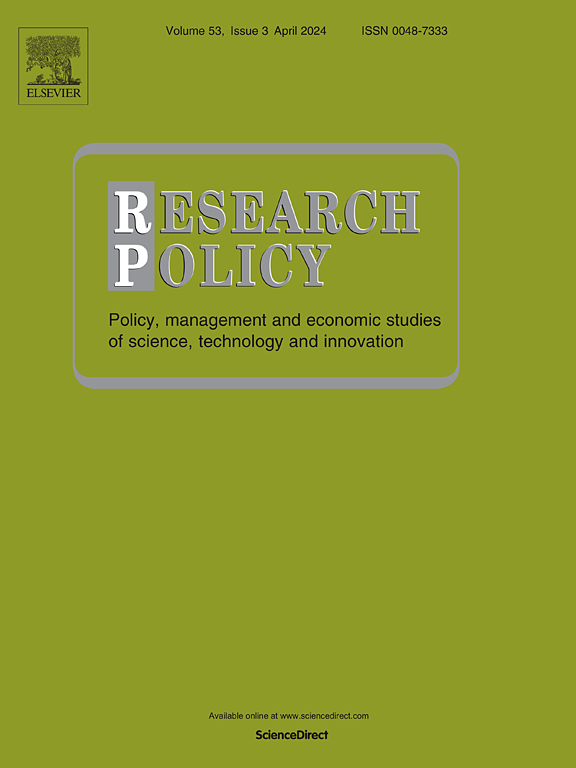The effect of trainee career intentions on mentor's interest in the trainee: Experimental evidence from academia
IF 8
1区 管理学
Q1 MANAGEMENT
引用次数: 0
Abstract
In many industries trainees often seek careers different from their mentors. For example, many PhD students seek non-academic careers. Anecdotally, mentors invest less in different-career trainees, but causal evidence is lacking. To fill this gap, we conducted an audit experiment in academia, where a fictitious prospective PhD student emailed immunology and microbiology principal investigators (PIs) about mentorship. The student's career intention was randomly described as “applied research in industry” (n = 1000), “basic research in academia” (n = 1000) or no description (control, n = 442). To mitigate concerns about skills and motivation, all emails highlighted the student's great academic record. Contrary to expectations, PIs responded at similar rates across all conditions. Treatment effects showed little heterogeneity based on the PIs' institution prestige, industry connections, and career length. These null findings challenge the widespread belief that mismatched career intentions cause less mentorship (although the two may still be associated) and the mechanisms assumed to drive that effect. Our results call for caution in deploying interventions to fix problems related to advisor-mentee misalignments before clearly establishing their source.
学员职业意向对导师对学员兴趣的影响:来自学术界的实验证据
在许多行业中,受训者经常寻求与导师不同的职业。例如,许多博士生寻求非学术职业。有趣的是,导师对不同职业的学员投入较少,但缺乏因果证据。为了填补这一空白,我们在学术界进行了一项审计实验,在该实验中,一名虚构的潜在博士生给免疫学和微生物学首席研究员(pi)发了一封关于导师的电子邮件。学生的职业意向被随机描述为“工业应用研究”(n = 1000),“学术基础研究”(n = 1000)或不描述(n = 442)。为了减轻对技能和动机的担忧,所有的电子邮件都强调了学生的优秀学习成绩。与预期相反,在所有条件下,pi的反应都相似。基于pi的机构声望、行业联系和职业长度,治疗效果几乎没有异质性。这些无效的发现挑战了人们普遍认为的不匹配的职业意向会导致更少的指导(尽管两者可能仍然存在关联)以及驱动这种影响的机制。我们的结果呼吁在明确确定其来源之前,在部署干预措施以解决与顾问-被指导者错位相关的问题时要谨慎。
本文章由计算机程序翻译,如有差异,请以英文原文为准。
求助全文
约1分钟内获得全文
求助全文
来源期刊

Research Policy
MANAGEMENT-
CiteScore
12.80
自引率
6.90%
发文量
182
期刊介绍:
Research Policy (RP) articles explore the interaction between innovation, technology, or research, and economic, social, political, and organizational processes, both empirically and theoretically. All RP papers are expected to provide insights with implications for policy or management.
Research Policy (RP) is a multidisciplinary journal focused on analyzing, understanding, and effectively addressing the challenges posed by innovation, technology, R&D, and science. This includes activities related to knowledge creation, diffusion, acquisition, and exploitation in the form of new or improved products, processes, or services, across economic, policy, management, organizational, and environmental dimensions.
 求助内容:
求助内容: 应助结果提醒方式:
应助结果提醒方式:


